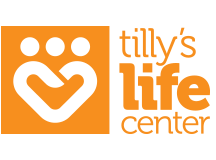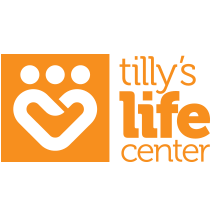
09 Jun Tough Talks #13: School Shootings
It is a horrific reality where young people go to school with fear and anxiety about their own safety. Yet, violence in schools is no longer an unprecedented tragedy. With every new incidence the fact has become undeniable: gun violence in schools is increasing. As the recent school shooting brought unspeakable pain to Uvalde, Texas, and resounding fear and outrage to communities across the country, the issue of teen mental health is more crucial than ever.
As older children and young adults mature, they develop a better understanding of the world, and everything positive and negative in it. In our latest Tough Talks series, we’re going through useful tips you can use to address the recent tragedies, offer support, reduce anxiety, and provide your teen with mental health resources.
Offering Support
When your teen is feeling distressed, as a parent, you naturally want to ease their concern. While going out into the world, even simply to school, may be a risk, your teen is likely to feel a sense of relief knowing that they have your support. Tell your teen that they should feel welcome coming to you anytime they feel unsafe, anxious, confused, or are experiencing any other difficult emotions. Remind them that you are a team and can work together to find the best tools to cope. Just knowing you are on their side, here to protect them and promote their safety, can make a huge difference.
Reducing Anxiety
When teens have to think about going to school, they might likely be experiencing anxiety about whether or not they are safe. This is completely natural. Help gauge your teen’s stress levels about gun violence in schools by having an open and honest conversation. Work together to find ways to promote a comfortable and safe learning environment. Maybe they want to start a club that promotes teen mental health? Or maybe they would feel more comfortable if your family or their school took additional safety precautions? Ask them what their concerns are and let them know that you are there to help them find solutions.
Addressing Violence
In the aftermath of a serious tragedy, it can be uncomfortable navigating how to talk about it amongst peers, especially those with conflicting opinions. Encourage them to listen to what their community members and peers are saying and think critically about what they choose to believe for themselves. Remind teens that it is ok to disagree with others respectfully but wrong to disagree in an aggressive or inconsiderate manner. If your teen is feeling unsafe talking with peers, provide them with guidance and advice on who to reach out to at school for mediation if peers are being disrespectful.
Speaking Up
Keep in mind that teens might feel not only anxiety surrounding their safety in school but also a sense of responsibility for speaking up if they notice any troubled peers. If your teen hears, sees, or otherwise recognizes peers that are making them fearful, encourage them to speak up. Suspicious posts on social media, aggressive comments, and any other upsetting signs of violence should always be reported. Remind them that they can always reach out to you, another trusted family member, mentor, or a school faculty person with their concerns. Explain that they are not alone, their community is here to support them every step of the way.
Providing Resources
Teens might need additional support to cope with fear, anxiety, and other difficult emotions. When you talk to your teen about any kind of violence, be sure to offer to help them find the additional tools they might need. Whether that be support groups, therapy, or Social Emotional Learning (SEL) resources, teen mental health resources can be especially useful for reducing anxiety, providing community, improving mental health, and enriching overall well-being. Ask your teen if they feel like they might benefit from any additional resources and if they express an interest, work together to make getting help possible.
At Tilly’s Life Center, we believe that teen mental health is equally as important to support as any other subject, hobby, or extracurricular. Our mission is to provide young people with Social Emotional Learning curriculum to help them learn about healthy ways to cope with difficult emotions so that they can live happier, healthier, more fulfilling lives. To learn more about TLC and the teen mental health resources available, visit www.tillyslifecenter.org.


